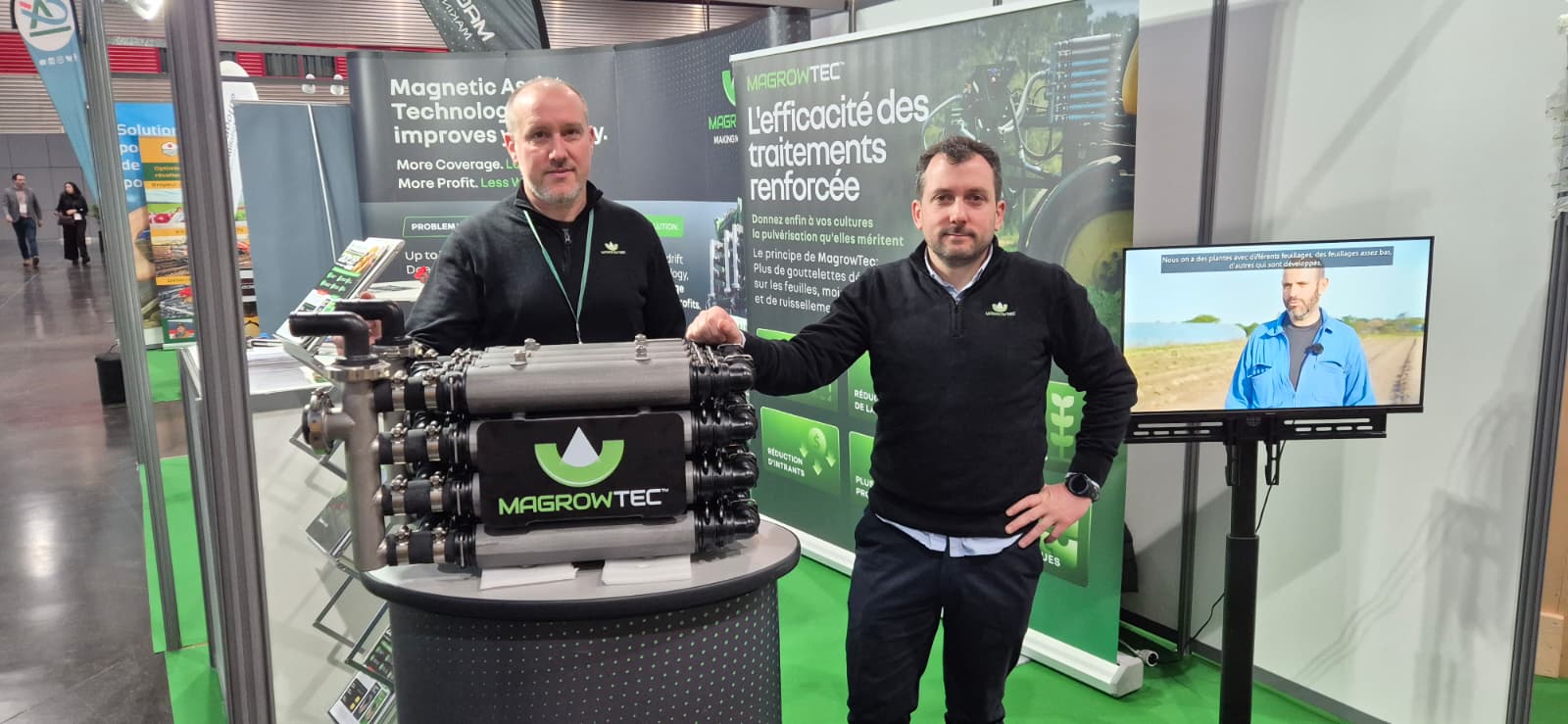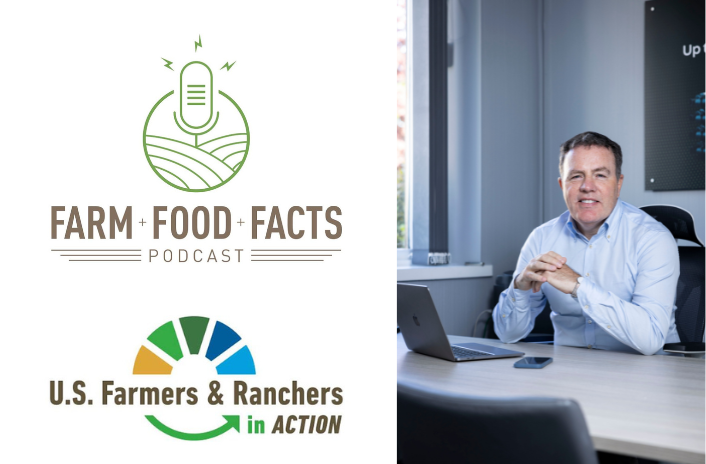SFI Research Centre AMBER announces a second research project with MagGrow, the Irish SME leading quest for more efficient, environmentally-friendly agricultural spray technology The second collaborative project between AMBER and MagGrow will build upon the encouraging results obtained from its AMBER 1 project, which yielded a clear magnetic effect upon spray performance and a platform for gaining further insight into the effect through more detailed scientific analysis.
AMBER, the SFI Research Centre for advanced materials science and bioengineering research hosted by Trinity College Dublin (TCD) has today announced a new research collaboration with MagGrow, an Irish SME based in Dublin, specializing in magnetic-assisted agricultural spraying. The overall goal of the jointly funded project, with leading magnet scientist Prof. Michael Coey FRS, is to build upon initial, AMBER I investigations into the physical basis for the magnetic effect attributed to the award-winning MagGrow spray technology, in respect
of economically beneficial and environmentally friendly spray coverage. In current practice, some 70% of pesticide spray does not reach the target crop. MagGrow’s innovative sprayer technology gives better coverage of the target plant, and reduced water usage. It reduces drift of the spray chemicals targeting them exactly where they are needed, with benefits to the health of agricultural workers and the soil. The MagGrow technology,
which has been researched and developed over the last six years, uses permanent magnets to achieve these results. Prof. Coey and his colleagues have already investigated the magnetic effects underpinning MagGrow technology, and in doing so have recognized the effect and the potential for further research, including the opportunity for a major, multi-million Euro multi-disciplinary effort aimed at triggering a paradigm shift in agricultural spraying. The new project will build on the initial findings and insights by extending its investigative reach to field and operational conditions, helping MagGrow explore and exploit the potential of the emergent science-into-technological practice to create innovative solutions for agriculture
and irrigation, particularly with regard to food security and environmental protection. The aim of the AMBER II project is to further investigate the physical basis for the magnetic effects of the MagGrow agricultural sprayer technology, using both field and laboratory-based research facilities to systematically investigate the influence of the magnets on spray characteristics, droplet size distribution, and spray coverage, and with a view to optimizing the magnetic and fluidic circuit designs in relation to drift, coverage and efficacy of chemical usage. This work will involve an interplay of experiment and finite-element computer modelling. The very detailed scientific information derived through this study will provide
MagGrow with the foundational theory to optimise existing products and develop the technology for other applications.
Prof. Michael Coey, AMBER and School of Physics, Trinity College, said: “We bring to the collaboration with MagGrow our internationally-recognized expertise in magnetism, and a long background of successful research in the School of Physics and AMBER on different aspects of this fascinating subject. We see that magnetic spraying has the potential to improve the delivery of pesticides and other agricultural inputs. The opportunity to extend our engagement with MagGrow in this project is exciting. Our aim is to shed light on the physical basis of the effects of rare earth magnets on crop spraying and contribute to optimizing a technology that could prove vital for feeding everyone on Earth in the coming years.” “This strategic collaboration builds on the work of our Research and Development teams in Ireland and the UK and will help us gain more of an understanding of the science around our technology, optimise our existing product set and help us identify new areas of product development,” said Gary Wickham, Chief Executive Officer, MagGrow. “The research team at MagGrow, led by ProfessorAnthony Furness, is delighted to beworkingwith ProfessorMike Coey and his team at Trinity on this collaboration. These industry-leading experts will help accelerate the optimisation and development of MagGrow products that are helping to fix large global issues right now, namely a scarcity of water, the waste associated with poor application of pesticides and the environmental damage that can result from spray run-off and spray drift.”
About AMBER
AMBER (Advanced Materials and Bioengineering Research) the SFI Research Centre for materials science based at Trinity College Dublin (TCD) provides a partnership between leading researchers in materials science and industry to develop new materials and devices for a range of sectors, particularly the ICT, medical devices and industrial technology sectors. The Centre is hosted in CRANN Institute on the College campus and involves the Trinity Centre for Bioengineering, University College Cork and the Royal College of Surgeons of Ireland. www.ambercentre.ie
MagGrow
MagGrow, an Irish company set up in 2013, employs over 25 people and has operations in four different regions: the USA, Canada, South Africa and Europe. MagGrow is a patented, proprietary technology for droplet formation that yields superior drift reduction of over 70% and spray coverage performance of up to 40% compared to conventional spraying. MagGrow has many other benefits to drift reduction and coverage such as significant reduction in water usage by up to 50%, extended spray windows, and reductions in labour. The MagGrow system has no moving parts, is easy to install and maintain, and can be fitted to a new or existing crop sprayer. There is an increasing demand on food & water, and MagGrow’s technology is supporting a more sustainable approach to primary food production. While prompted by competitive demands and the global challenge of meeting the needs for
future food production, MagGrow’s primary focus is on meeting customer needs, and satisfaction based on results.




